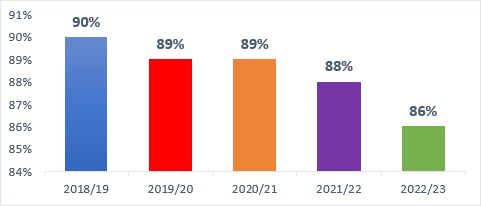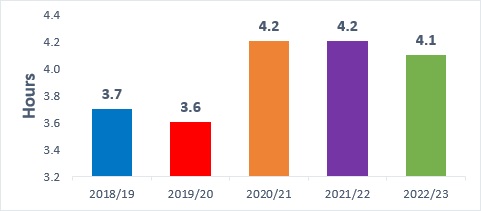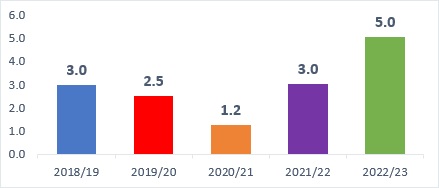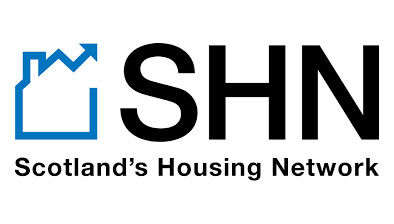Scotland’s Housing Network unveils preliminary Charter results

Andrea Finkel-Gates
Scottish social housing landlords have shown improved performances in many areas though landlords continue to face many challenges across the sector, according to Scotland’s Housing Network.
Scotland’s Housing Network is the largest benchmarking network for social housing landlords in Scotland, the data set comes from 116 landlords, representing around 70% of the social landlords in Scotland. The review provides a summary of trends from the most comprehensive dataset on Charter Performance for 2022/23 available at the present time.
The 2022/23 results show a mixed picture as social landlords continue to face ongoing challenges across the sector. Most notably average tenants’ satisfaction has reduced by four percentage points since 2018/19.

Overall tenant satisfaction
This is reflected in the reduction in tenants’ satisfaction with repairs services to 87% in 2022/23. Whilst most landlords continue to respond quickly to emergency repairs, timescales for non-emergency repairs have increased from 6 days in 2016/17 to 9 days in 2022/23. Whilst there has been a reduction in the volume of emergency repairs there has been an increase in non-emergency repairs completed.

Average hours to complete emergency repairs
Whilst there has been a reduction in existing tenants’ satisfaction with the quality of their home, there are signs that the social housing sector is performing well in these areas. Gas safety fails have significantly reduced from 3,028 in 2021/22 to 872 in 2022/23, remaining concentrated amongst a small number of organisations.
The introduction of Fire Safety and EICR elements into the Scottish Housing Quality Standard (SHQS) previously resulted a significant reduction in SHQS compliance in 2021/22. This year has also seen a considerable increase in the proportion of homes that meet the SHQS to 78% across the sector. Furthermore, the percentage of homes compliant with EESSH has increased to 91%.
Landlords’ average rent increase for 2022/23 was 5%, an increase of 2 percentage points since 2018/19. Whilst this rent increase remained below inflation, ongoing cost pressures are likely to result in challenges for the sector in keeping rents affordable while also ensuring that statutory obligations can be met.

Average rent increase
Andrea Finkel-Gates, chief executive officer at SHN, said: “While we don’t yet have the full picture until the SHR publishes the performance from the Annual Return on the Charter in August 2023, Scotland’s Housing Networks Performance Review provides the most comprehensive dataset on Charter Performance for 2022/23 available at the present time.
“We are confident that the experience of our members in bringing about improvements in many Charter indicators suggest that Scottish social landlords will be able to face the ongoing challenges to improve services for their tenants and communities. The full performance report, alongside the data dashboards, can be accessed on our member website.”







